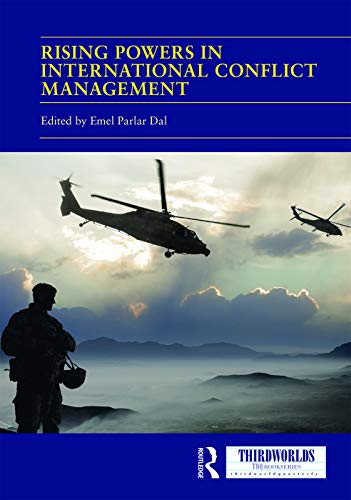

Most ebook files are in PDF format, so you can easily read them using various software such as Foxit Reader or directly on the Google Chrome browser.
Some ebook files are released by publishers in other formats such as .awz, .mobi, .epub, .fb2, etc. You may need to install specific software to read these formats on mobile/PC, such as Calibre.
Please read the tutorial at this link: https://ebookbell.com/faq
We offer FREE conversion to the popular formats you request; however, this may take some time. Therefore, right after payment, please email us, and we will try to provide the service as quickly as possible.
For some exceptional file formats or broken links (if any), please refrain from opening any disputes. Instead, email us first, and we will try to assist within a maximum of 6 hours.
EbookBell Team

4.7
46 reviewsRising Powers in International Conflict Management locates rising powers in the international conflict management tableau and decrypts their main motives and limitations in the enactment of their peacebuilding role.
The book sheds light on commonalities and divergences in a selected group of rising powers’ (namely Brazil, India, China, and Turkey) understanding and applications of conflict management and explains the priorities in their conflict management strategies from conceptual/theoretical and empirical aspects. The case studies point to the evolving nature of conflict management policies of rising powers as a result of their changing priorities in foreign and security policy and the shifts observed in the international order since the end of the Cold War. The country-specific perspectives provided in this study have also proven right the potentialities of rising powers in managing conflicts, as well as their past and ongoing challenges in envisaging crises in both their own regions and extra-regional territories.
Improving the understanding of the strengths and weaknesses of rising powers as conflict management actors and peacebuilders at regional and international levels, Rising Powers in International Conflict Management will be of great interest to scholars of international relations, conflict studies, and peacebuilding. The chapters were originally published as a special issue of Third World Quarterly .